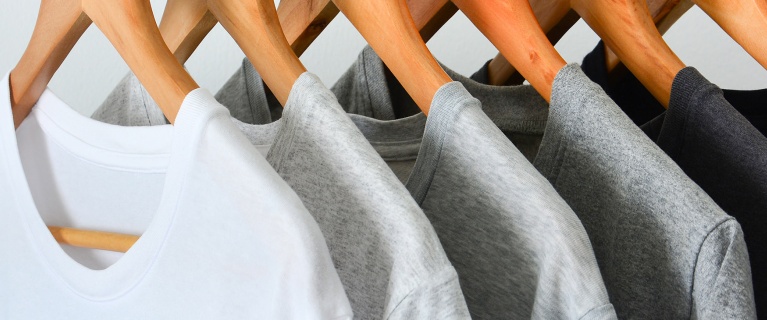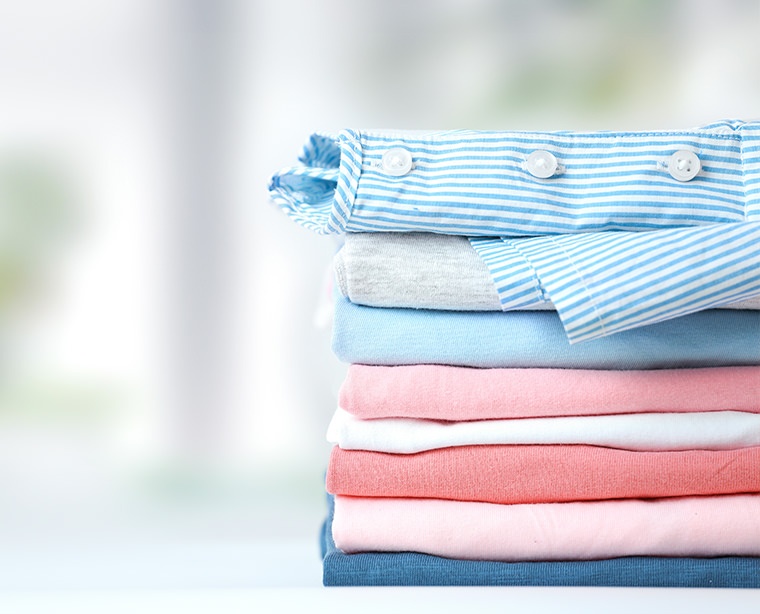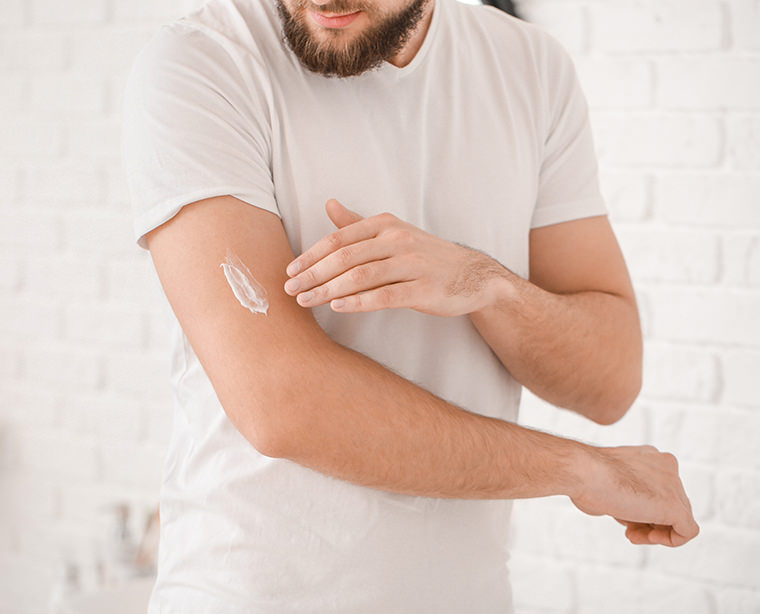

Atopic eczema: tips for clothing and detergent

Our skin is in direct contact with our clothes and detergent residue. So, making sure these items are well tolerated when skin is irritable or during flare-ups is just one life-changing habit for people with eczema.
Clothing shouldn’t make you itch
Avoid irritating fabrics
For people with eczema, some fabrics are very well tolerated, while others are simply unbearable. Wearing suitable fabrics can help avoid any unnecessary itching.
- Undergarments should be cotton (or even silk).
- Opt for organic fabrics in light colors to avoid contact with dyes or treatments.
- Linen is another good option.
- Avoid any synthetic and treated materials.
- For your sweaters and hats, avoid wool at all costs, as it causes extreme discomfort. Instead, wear high-quality fleece or cotton sweaters, both well-tolerated materials.
- Try dressing children in pajamas made with soft terry cloth or silver threads.
- Remove any tags inside the clothing that may come into contact with the skin.
Not too covered, not too tight
Heat aggravates itching and scratching, as does friction with certain fabrics.
- Try wearing loose, breathable clothes.
- A baggy fit is best, even when exercising. Remember to bring a change of clothes as well.
- Try to avoid overly pronounced seams, as they can rub against the skin and cause irritation.
Detergent: a critical decision for people with eczema
A change in laundry detergent alone can obviously provoke itching. Inversely, adopting good laundry habits can help improve eczema symptoms!
Liquid detergent is better than tablets
Liquid formulas are preferred, as they dissolve more easily in water. They also reduce any potential residue left behind from insufficient rinsing. Furthermore, the powders and tablets are caustic. Plus, with liquid detergent, you can use less than the recommended dose, which is always more than you need. A heaping tablespoon is sufficient for a load.
When washing your child’s clothes, try setting an extra rinse cycle to remove all the detergent.
Limit your use of fabric softeners
Fabric softeners contain a number of synthetic fragrances and are often poorly tolerated by atopic skin. Try placing clothes in the dryer, which makes clothes softer and more supple. If you do not have a dryer, opt for fabric softeners containing very few fragrances. Even still, try to avoid using them as much as possible.
Better to go without and have stiff clothes rather than have soft clothes infused with chemicals from these products.
Avoid fragrances and essential oils
Detergents containing strong fragrances or essential oils should be avoided, as scented substances, whether synthetic or natural, are allergenic.
Watch out for allergens
Be wary of claims such as “hypoallergenic” or “dermatologically tested”, as these tests are conducted on adults and not children.
To buy products containing the fewest possible allergens, look for the label “Allergen controlled”. This label guarantees that the product is free of any component classified as a potential allergen such as fragrance substances (linalool, limonene, etc.) or preservatives like isothiazolinones.
For eczema, natural isn’t always best
Even if you’re an advocate for natural solutions, be careful of certain recipes. Blends of white vinegar or essential oils, for example, are especially harsh on babies’ skin.
Another reason to use the dryer
We strongly discourage hanging clothes to dry outside, especially in the spring and fall, when the air contains a number of allergens that can land on your clothes.
Washing clothes before wearing them
Wash all new clothes before letting your child wear them. This helps eliminate a lot of residue.
Is my skin allergic to clothing?
No, in the case of atopic eczema, you simply have an intolerance. Certain clothes “provoke” patches due to their material or by rubbing against the skin.
It’s also possible to have contact allergies to components in certain clothing items, such as nickel in belt buckles or jean rivets, or even to materials used to make shoes or soles (leather and adhesives), which could trigger eczema. Certain synthetic dyes can also cause eczema. Here, we are not dealing with atopic eczema, but rather a clear case of allergic contact eczema.


